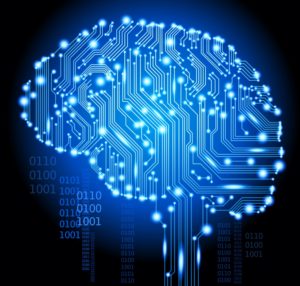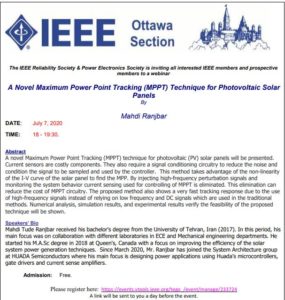Events

Technological Stewardship is a new concept intended to focus on the promise of technology to create a better future for society today and avoid the negative consequences. While Technologies have the promise to address key issues and create a better future, new developments often amplify inequities and create new kinds of risk. What does this mean for how to move
forward?
Through this interactive 2-hour workshop, you will learn about Technological Stewardship and develop your ability to ensure technology makes the world a better place for all. You will also be introduced to a powerful tool for practically integrating these concepts into the product design/development process.
Facilitator:
Mark Abbott is the Executive Director of the Engineering Change Lab, which serves as a catalyst for evolving the engineering community to reach its full potential as stewards of technology for the benefit of humanity. Over the past 5 years, over 125 organizations and 350+ individual leaders (CEOs, VPs, Deans, Directors) have collaborated using the Lab’s platform advancing understanding and action to evolve engineering. Previously, Mark served as member of the Executive Team at Engineers without borders for several years.
This interactive workshop is limited to 45 attendees so as to create an optimal interactive and learning environment. This series of workshops is planned to have subsequent workshops taking place in March and April. We are especially interested in professionals willing to tryout the powerful tools and providing feedback on integrating the concepts into the product design / development process.
![[CANCELLED] IEEE Ottawa seminar on Microgrid Stability Definitions, Analysis, and Modeling @ Algonquin College, T-Building, Room T129 | Ottawa | Ontario | Canada](https://www.ieeeottawa.ca/wp-content/uploads/2020/02/IEEE_MFarrokhabadi_Seminar_Flyer_17Mar2020-232x300.jpg)
NOTE: This event has been cancelled due to COVID-19 precautions
Dear colleagues,
Due to the current situation regarding corrona virus COVID-19, we have to CANCEL our IEEE Ottawa Section Seminar:
“Microgrid Stability Definitions, Analysis, and Modeling”
by Dr. Mostafa Farrokhabadi,
which was scheduled for Tuesday, Mar. 17, 2020, 6:00 p.m., at Algonquin College, 1385 Woodroffe Ave., T-Building, Room T129.
The new date and time for this seminar will be determined and announced when the circumstances allow.
We are sorry for the inconvenience and thank you for your understanding.
Sincerely,
Branislav Djokic
TITLE: Microgrid Stability Definitions, Analysis, and Modeling
SPEAKER: Dr. Mostafa Farrokhabadi, Director of Technology at BluWave-ai, Ottawa
DATE: Â Â Â Tuesday, March 17, 2020.
TIME:    Refreshments, Registration and Networking: 6:00 p.m.; Seminar: 6:30 p.m. – 7:30 p.m.
LOCATION: Ciena Optophotonics Lab, Room T129, T-Building, School of Advanced Technology, Algonquin College, 1385 Woodroffe Ave., Ottawa, ON Canada K2G 1V8.
PARKING: Parking at Lots 8 and 9 after 5 p.m. is $5 flat rate, pay at a machine and display the ticket on your dashboard. Please respect restricted areas.
Abstract: A microgrid is defined as a group of Distributed Energy Resources (DERs) and loads that act locally as a single controllable entity and can operate in both grid-connected and islanded modes. Microgrids are considered a critical link in the evolution from vertically integrated bulk power systems to smart decentralized networks, by facilitating the integration of DERs. Entities, such as government agencies, utilities, military bases, and universities around the world are deploying microgrids, and an increasing number of these systems are expected to be developed in the next decade. In general, stability in microgrids has been treated from the perspective of conventional bulk power systems. However, the nature of the stability problem and dynamic performance of a microgrid are considerably different than those of a conventional power system due to intrinsic differences between microgrids and bulk power systems, such as size, feeder types, high share of Renewable Energy Sources (RES), converter-interfaced components, low inertia, measurement devices such as Phase-Locked Loop (PLL), unbalanced operation, etc.
This seminar discusses the findings of the award-winning IEEE PES Task Force on Microgrid Stability Definitions, Analysis, and Modeling, which defines concepts and identifies relevant issues related to stability in microgrids. The seminar presents definitions and classification of microgrid stability, considering pertinent microgrid features such as voltage-frequency dependence, unbalancing, low inertia, and generation intermittency. A few examples will be also presented, highlighting some of the stability classes discussed during the seminar.
Speaker’s Bio: Dr. Mostafa Farrokhabadi is the Senior Director of Technology at BluWave-ai, an internationally award-winning startup offering AI-enabled control and optimization solutions for smart grids. He has more than 8 years of experience in designing mission critical grid solutions for industry and academia, including technical leadership of a $6M international consortium in Electric Grid Modernization, and Smart Grid projects with Hatch and Canadian Solar. Mostafa has authored/co-authored several high-impact technical papers and patents on intelligent control and optimization of renewable-penetrated grids.
Mostafa obtained his PhD in Electrical and Computer Engineering from the University of Waterloo. He has also studied and performed research in Sweden at KTH and Germany at KIT. During the course of his career, Mostafa has received multiple business, research, and teaching awards, including the prestigious University of Waterloo Doctoral Thesis Completion Award and Ottawa’s Forty Under 40.
Mostafa has also led the award-winning IEEE Power and Energy Society Task Force on microgrid stability, an international coalition of 21 researchers from 14 institutions investigating stability issues in microgrids. Currently, he serves as an Associate Editor of the IEEE Transactions on Smart Grid.
Admission: Free. Registration required. Please register by e-mail contacting: ajit.pardasani@ieee.org or branislav@ieee.org.
IEEE_MFarrokhabadi_Seminar_Flyer_17Mar2020
IEEE Ottawa Seminar Series on AI and Machine Learning
IEEE Ottawa Section, PHO Chapter,
CS Chapter, SP Chapter, TEMS Chapter
Jointly with Vitesse
Reskilling
The Rise & Foreseeable Future of
Artificial Intelligence:
Observations from a Commercial Pioneer
Peter MacKinnon
Synergy Technology
Management
—————————————————————-
Wednesday, March 18, 2020
359 Terry Fox Drive, Suite 200, Kanata, Ontario
11:30 – 13:30
—————————————————————-
 Artificial Intelligence (AI) is constantly in the news
Artificial Intelligence (AI) is constantly in the news
with stories of promise and peril.
Political leaders have declared it a national priority, the global high
tech industry is racing AI apps to markets and policy and governance
implications of AI are in their infancy.
We will explore where this is all heading.
We will begin with some definitions and a bit of
history behind the rise of AI. The talk
will then place AI in the context of being a potentially disruptive technology
on society. This will lead to a discussion about ethics and moral issues
regarding the development and use of aspects of AI as a dual-use
technology. Time permitting, the role of
AI in defence and security will be used as an example for appreciating the
complexity and ethical issues brought on by AI. We will then turn to the role
of the engineer in this new world being enabled by AI.
Finally, we will review potential governance and
policy issues and options to address the rapid unchecked development and
application of AI within society at large; and, ultimately end with a
precautionary note.
Biography
The speaker was
a pioneer in the commercialization of AI in the 1980s and today is actively
involved in ethical and policy issues related to AI. Peter has an extensive background on the
forefront of scientific and technological breakthroughs around disruptive
technologies and their impacts on society.
He was an early proponent in the development and promotion of Big Data
and data analytics using High Performance Computers, and was a major
contributor in creating the Internet in Canada, among other accomplishments.
Peter has a
background as a scientist, business manager, entrepreneur, domestic and
international bureaucrat, executive, diplomat, management advisor, and
academic; including most recently affiliation with both Telfer School of
Management and the Faculty of Engineering at the University of Ottawa and the
Faculty of Engineering at Carleton University.
Peter also blogs on AI for the Institute on Science, Society and Policy,
an interfaculty organisation at uOttawa.
Â
—————————————————————-
Event
is free, but space is limited. All
participants must register in advance. Â
Please
follow the link to register
https://events.vtools.ieee.org/m/226058
—————————————————————-
For
more information, please contact: Kexing Liu kexing.liu@ieee.org
On behalf of the conference organizing committee,
we invite you to the virtual Photonics North Conference on May 26-28,
2020. In the midst of a global crisis,
we look forward to meeting with all of you, our colleagues, as we carry on with
the work of advancing optical science and engineering. Join us for outstanding
plenary talks from inspirational thought leaders. Join us for the very best
work from respected and established researchers. Join us for talks from
emerging researchers, presenting what is surely the opening work of brilliant,
burgeoning careers.
Photonics and optics are finally seeing widespread adoption and significant growth into new markets. Photonic devices are being applied to sensing, communications, and even quantum computing. High speed fiber optics and highly integrated subsystems are essential to the rollout of 5G systems. There has never been a better time for research, development, and training in photonics and Photonics North is essential for developing and promoting the ecosystem.
Â
Conference Chairs
Gord Harling
President and CEO, CMC Microsystems   Â
P. Scott Carney
The Institute of Optics, University of Rochester​   Â

|
The IEEE Reliability Society & Power Electronics  A Novel Maximum Power Point Tracking (MPPT) Technique for Photovoltaic Solar Panels By  Mahdi Ranjbar DATE:      July 7, 2020 TIME:       18 – 19:30.     A  Mahdi
A link will be sent to you a day before the event. Â |

